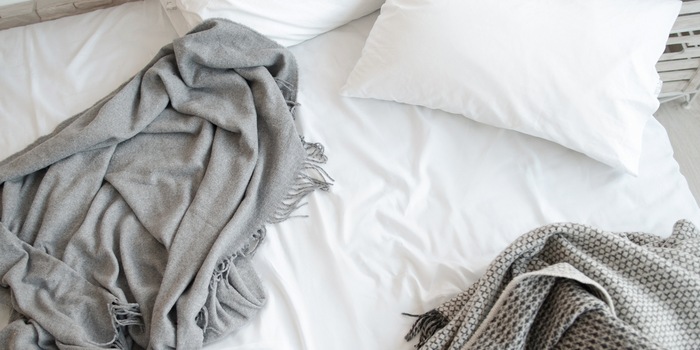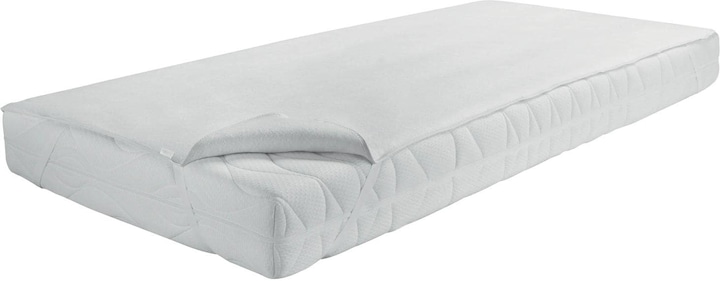

Freshen up your bed: how to clean your bedroom
You spend about a third of your life in bed - but do you clean your bedroom from time to time? I'm not talking about the duvet cover. I'm talking about the pillow, duvet and mattress. You sweat an average of half a litre per night and shed countless flakes of skin. This attracts germs, bacteria and mites. So a complete clean is a to-do for your next big house-cleaning. I'll tell you the best way to do this here.
Maybe one or two single people will be happy: you're not alone in bed. But joking aside - mites, bacteria and germs are not exactly appetising. To keep these visitors away from your sleeping area, it is recommended that you clean the entire bed thoroughly at least once a year. The duvet cover, on the other hand, should be washed according to your preference, but after two weeks at the latest.
Why you should clean your bed
Maintain moisture and heat regulation
One of the main reasons why our bed gets dirty is our sweat. We sweat around 180 litres in a year. This releases salts and skin oils into the entire bed. Down, feathers and other fillings stick together. Liquid collects in the various materials and prevents them from performing their functions. As a result, natural moisture regulation and heat regulation are no longer sufficient. By washing your bed regularly, you can counteract this and put an end to other co-inhabitants such as bacteria, mites and germs.
Giving mites and allergies no chance
Mites feed on dead skin flakes. The cosy warm temperatures in bed allow the little creatures to multiply unchecked. Just a quarter of the skin cells we lose each night is enough to feed thousands of mites for months. House dust mites are not dangerous animals in themselves - they do not need to be combated daily, but they do need to be combated regularly. It is therefore necessary to clean your bed at least once a year. If you are prone to intolerances or even want to prevent possible allergies, it is better to wash your bedding two to four times a year.

Cleaning the mattress and bedding made easy
Mattresses are often sold with a protective cover. You can easily clean it in your washing machine according to the washing instructions. For all other mattresses, I have put together a step-by-step guide here
Remove the dirt
Vacuum your mattress with a hoover. Before vacuuming, make sure that the nozzle or brush attachment is completely clean. This will remove mites, dust, skin cells and other debris from your mattress. It is best to use a wide brush attachment to clean the surface. The upholstery nozzle is suitable for getting into crevices. There are special mattress vacuum cleaners for this purpose.
Remove odours
Remove odours easily with baking powder. To do this, sprinkle a generous amount over the entire surface of the mattress. Tip: This works more evenly with a sieve. Give the baking powder at least 30 minutes to absorb all odours. This allows it to break down acids and absorb odours and liquids. The longer you leave the baking soda to work, the more it absorbs and the deeper it cleans your mattress. Then vacuum your mattress again.
Airing
After cleaning, you need to air the mattress. If it's warm, you can open your window so that the fresh air dries your mattress more quickly. If it's too cold, make sure the sun's UV rays get to work on the bacteria.
Washing bedding
Pillows and duvets can be roughly divided into two types. There are synthetic and natural fabrics and products used by manufacturers. Pillows and duvets made from synthetic fabrics are usually uncomplicated and can be easily cleaned according to the washing instructions provided. Be careful with natural products such as down pillows and duvets. There is a lot to consider with bedding made from natural products. Making mistakes with the detergent, the dosage or the washing temperature can have fatal consequences. It is also important to dry the duvet completely, which requires a drum volume that unfortunately very few household appliances have - which is why I would rather refer you to a dry cleaner at this point.
Suitable products:
Friends, family, cats and good wine are my lifeblood.
Interesting facts about products, behind-the-scenes looks at manufacturers and deep-dives on interesting people.
Show all